Communication is an invaluable life skill that enables individuals to build meaningful connections, express themselves clearly, and comprehend others’ opinions. As a parent or caregiver, teaching your children practical communication skills is essential for their social and emotional development.
One way to help children develop their communication skills is through conversation games for kids, which offer a fun and interactive way to practice these abilities. Popular examples of such games include Two Truths and a Lie, Simon Says, Twenty Questions, Would You Rather, and Alphabet Game.
By playing conversation games, children can learn how to express themselves, understand and respect others’ opinions, and develop critical thinking abilities. It also helps them build strong and healthy relationships with their peers, family, and friends.
40 Fun Conversation Games for Kids

1. Two Truths and a Lie
In this game, each player tells three statements about themselves, two of which are true and one of which is false. The other players must guess which one is false. This game encourages active listening and helps children develop their ability to distinguish between fact and fiction.
2. The Whisper Challenge
One player whispers a phrase to another player, who repeats it to the next player, and so on. The last player says the phrase out loud, and everyone can see how the message may have changed. The Whisper Challenge is an ideal activity for teaching kids the significance of clear communication and how miscommunication can occur.
3. What’s the Question?
One player chooses a topic and makes a statement about it. The other players must come up with a question that corresponds to this statement. This conversation game for kids is a great way to improve children’s listening skills. It can also help them learn how to ask questions to clarify information.
4. Hot Potato
In this conversation game for kids, players pass an object like toys around while music plays. When the music stops, whoever holds the object must answer a question or share something about themselves. Playing this game encourages kids to think independently and build confidence in their ability to communicate in front of others.
5. Picture Storytelling

Here, one gives each player a picture and asks them to create a story based on it. This conversation game urges children to use their imagination and communication skills to craft an exciting tale they can share with others.
6. Would You Rather
Would You Rather involves asking children a series of questions that require them to choose between two options. It encourages them to think creatively and explain their thought processes.
7. I Spy
This classic conversation game for kids is an excellent way for children to observe and describe their environment. It involves one child giving a clue, and the others have to guess the object.
8. Storytelling
Storytelling involves one child starting a story and the others adding to it. It encourages children to use their imagination, develop their narrative skills and learn to be active listeners.
9. Simon Says
Simon Says is a game that teaches children to follow directions and listen carefully. One person gives instructions. The others only have to follow if the instruction starts with the phrase “Simon says.”
10. Conversation Starter
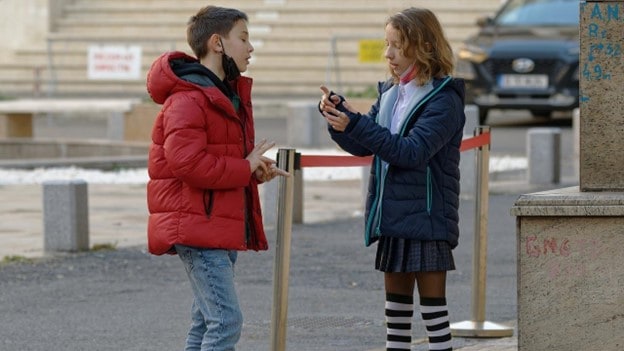
An underrated game that encourages communication, Conversation Starter is a game in which children are asked thought-provoking questions. This allows them to express their opinions and thoughts on various topics.
11. Twenty Questions
Twenty Questions is another classic children’s guessing game. One player thinks of an object, and the other players ask yes or no questions to guess what it is. Players have 20 questions to guess the object, and the player who guesses correctly becomes the next person to think of an object.
12. Telephone
In the game Telephone, one person whispers a message to another. The second person then whispers it to the next person, and so on. The last person says the message out loud, and it’s compared to the original message to see how it has changed.
13. Truth or Dare
Truth or Dare is a favorite game of many. In this game, players ask each other to choose between telling the truth or doing a dare.
You can ask any question or suggest any dare. However, it must be appropriate and within the comfort level of the other players. If a player refuses to answer the question or take the dare, they may be penalized or eliminated from the game.
14. Never Have I Ever
Never Have I Ever is a game where players take turns saying something they have never done before. If another player has done the thing mentioned, they must put a finger down. The game continues until a player has put all their fingers down.
15. Alphabet Game
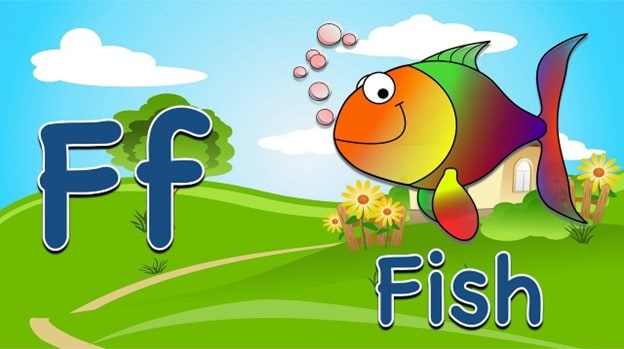
Players take turns saying a word beginning with the next letter of the alphabet. The game continues until a player runs out of words. Players cannot repeat a word that has already been said.
16. Charades
In this conversation game for kids, players act out a word or phrase without speaking. Meanwhile, the other players try to guess the word or phrase.
The person acting out the word or phrase can’t make sounds or use props. The game can be played in teams or individually and is often used as a party game or to improve communication and acting skills.
17. Rock-Paper-Scissors
A classic hand game where players choose rock, paper, or scissors and try to beat their opponent.
18. Who Am I?
Who Am I is a fun conversation game that helps kids learn about people, places, and things. One player thinks of a person or character and provides clues about them.
The other players try to guess who the person is. The player who correctly guesses the person gets to think of the next clue.
19. Hangman
Hangman is a word-guessing game played between two or more people. One person thinks of a word, and the other person(s) tries to guess it by suggesting letters.
The word is represented by a series of dashes representing each letter. For each incorrect guess, a part of a “hangman” is drawn until the word is guessed correctly or the hangman is completed.
20. The Minister’s Cat
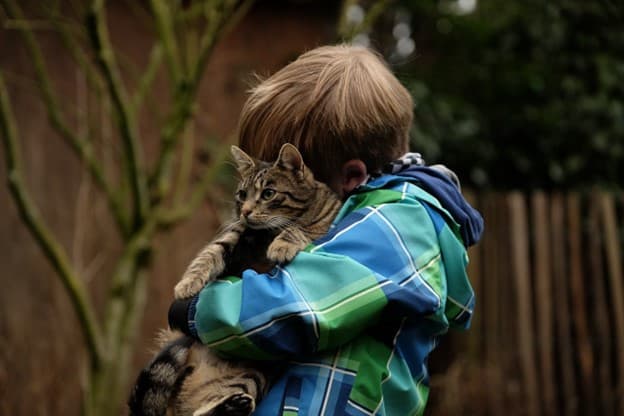
The Minister’s Cat is a word game in which players take turns describing the Minister’s Cat with an adjective that begins with the next letter of the alphabet. For example, “The Minister’s cat is angry.”
If players cannot think of an adjective that starts with the next letter, they’re out of the game. The game continues until only one player remains.
21. Categories
The game begins with someone choosing a category, such as animals, colors, or fruits. Players take turns naming items that fit into a specific category. They then take turns naming items that fit into that category until someone can’t come up with a new answer.
22. Heads Up
Heads Up is a game where one person holds a card to their forehead without looking at it, and the other players give them clues to guess what is on the card. The person with the card on their forehead can only answer yes or no to the clues given. The game continues until the person correctly guesses the word or time runs out.
23. Emoji Charades
Emoji Charades is a conversation game for kids where they act out a phrase or word using only emojis. The other players must guess the phrase or word based on the emojis. It’s a fun and engaging way for kids to use their creativity and communication skills.
24. Famous Duos
Players take turns naming pairs of famous people who are often associated with each other. The pairs can be from different fields, such as movies, music, literature, or history. The game can be played in a group or one-on-one, and the player who can’t think of a pair loses the round.
25. I’m Going to a Picnic
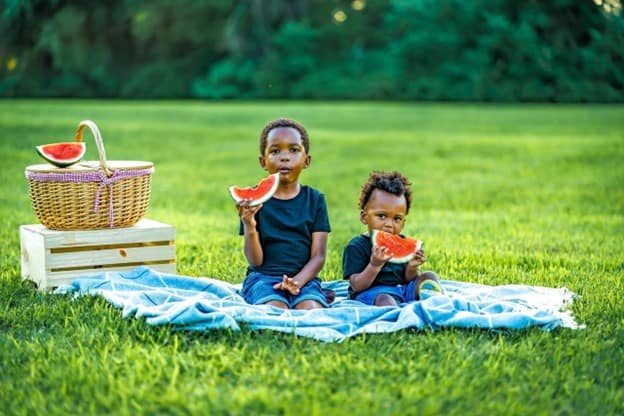
Players take turns adding to a list of items to bring to a picnic but can only add an item that starts with the next letter of the alphabet.
26. Trivia Challenge
Trivia Challenge involves asking and answering questions about various topics, such as science, history, geography, literature, and pop culture. The game usually involves players taking turns to ask questions and awarding points for correct answers. The winner is usually the player with the most points at the end of the game.
27. Mad Libs
Mad Libs is a fun conversation game for kids that involves filling in the blanks of a story with various types of words, such as nouns, verbs, and adjectives. The result is often a hilarious and nonsensical story that the players create together. Players take turns filling in the blanks without knowing the story’s context, which leads to unexpected and often comical outcomes.
28. Name That Tune
One player hums or sings a tune, and the other players have to guess the song’s name.
29. Word Association
In this game, one player says a word, and the others say the first thing that comes to mind. The game continues with the last word said.
30. Pictionary
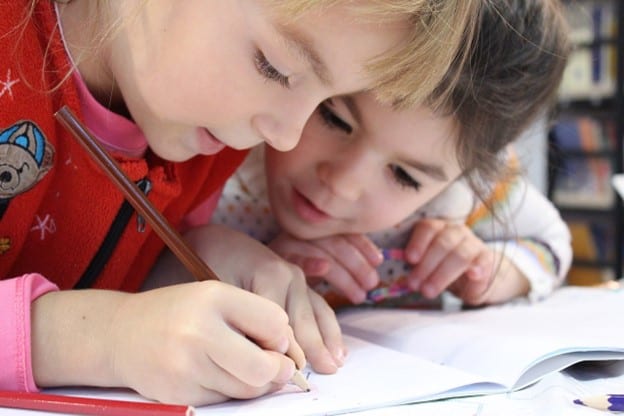
Pictionary is a drawing and guessing game that is popular among kids. One player selects a word or phrase and then draws a picture on a piece of paper. The other players then try to guess the word or phrase based on the picture.
31. Scavenger Hunt
Players take turns asking questions to find hidden items. The game can be played indoors or outdoors, and the players must find items from a list or clues provided by the person running the game. The winner is the player who finds all the items first or the most items within a certain time frame.
32. Celebrity Impersonations
Celebrity Impersonations is a game where kids pick a famous person and then take turns impersonating them. The other players must guess who they are impersonating. The winner is the person who can guess the most celebrities correctly.
33. Guess that Sound
Guess that Sound is a conversation game for kids where one player makes a sound, and the other players must guess what it is. The player who guesses the sound correctly gets to make the next sound. The game can continue for as long as the players want to keep playing.
34. Word Chains
Players take turns saying words starting with the previous word’s last letter. The goal is to keep the chain going without repeating words or getting stumped. The game can be played with any number of players and is a fun way to build vocabulary and critical thinking skills.
35. Animal Sounds
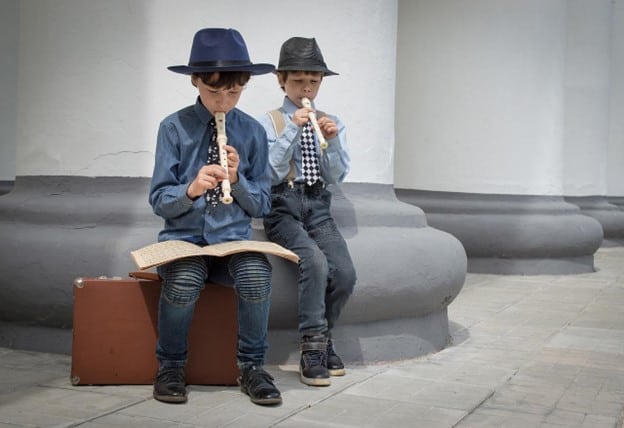
Kids have to make sounds of different animals. Each player takes turns choosing an animal and then imitates the sound of that animal. The other players have to guess which animal it is.
36. Guess the Movie
In Guess the Movie, one person thinks of a movie and gives clues to the other players. The players have to guess the movie’s name based on the clues given by the first person. The player who guesses the movie correctly gets to think of a movie for the next round.
37. Finish the Sentence
Finish the Sentence is an exciting game where one person starts a sentence, and the other person has to complete it. The first player can begin with any sentence they choose, and the second player must finish it in a way that makes sense. This game encourages creativity and imagination.
38. Rhyme Time
Players take turns saying words that rhyme with the word given. Each player has a few seconds to think of a rhyming word, and the game continues until one player can’t think of a new rhyme. The player with the most rhymes at the end of the game wins.
39. Spelling Bee
One player gives one word, and the other player has to spell it correctly. If the player spells the word incorrectly, they lose a point. The game continues until one player has no points left.
40. Tongue Twister
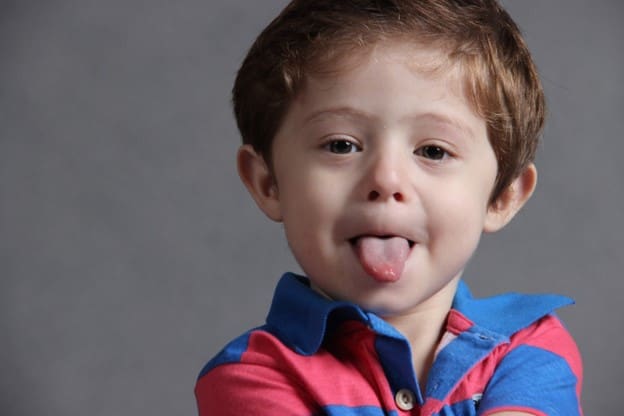
Tongue Twister is a kids’ conversation game where players take turns saying a phrase or sentence that is difficult to pronounce. The goal is to state the phrase quickly and accurately without stumbling over the words. The player who can say the tongue twister the fastest and most clearly wins.
How Conversation Games for Kids Improve Communication Skills
As stated earlier, conversation games for kids enable children to practice their communication skills. Because these games are designed to stimulate conversation, the children can enhance their ability to express themselves clearly.
Consequently, they’ll be able to develop stronger bonds with their family and friends. Aside from the benefits mentioned, below are specific ways in which conversation games can help children improve their communication skills.
Encourages Active Listening
Many conversation games require children to listen carefully to what the other person is saying to respond appropriately. For instance, in a game like “telephone,” children must listen carefully to the message being passed down the line to repeat it accurately. This helps develop their active listening skills.
Develops Language Skills
Conversation games can help children build their vocabulary, practice grammar, and improve their overall language skills. Games like “I Spy” and “20 Questions” require children to describe objects using descriptive language, which helps them communicate more effectively.
Boosts Confidence
Conversation games give children the chance to express themselves in a safe and encouraging environment. These activities help them develop confidence in their communication abilities and make them more comfortable speaking up in social situations.
Improves Social Skills
Conversation games for kids help develop social skills by teaching them how to interact with others, take turns, and have meaningful conversations. These skills are important for building friendships and navigating social situations inside and outside the classroom.
Enhances Problem-Solving Skills
Some conversation games, such as “Would You Rather?” and “Never Have I Ever,” urge children to think critically and make decisions based on the provided information. In other words, these can help them hone their problem-solving skills and make sound decisions.
Final Thoughts
Parents want their children to be effective communicators at home and in their interactions with the world. Conversation games are a fun and interactive way to teach kids effective communication skills.
Parents can also use these games to bond with their children, create a positive learning environment, and have fun together. By making learning fun and interactive, these games can help children develop the skills they need to succeed in and outside the classroom.